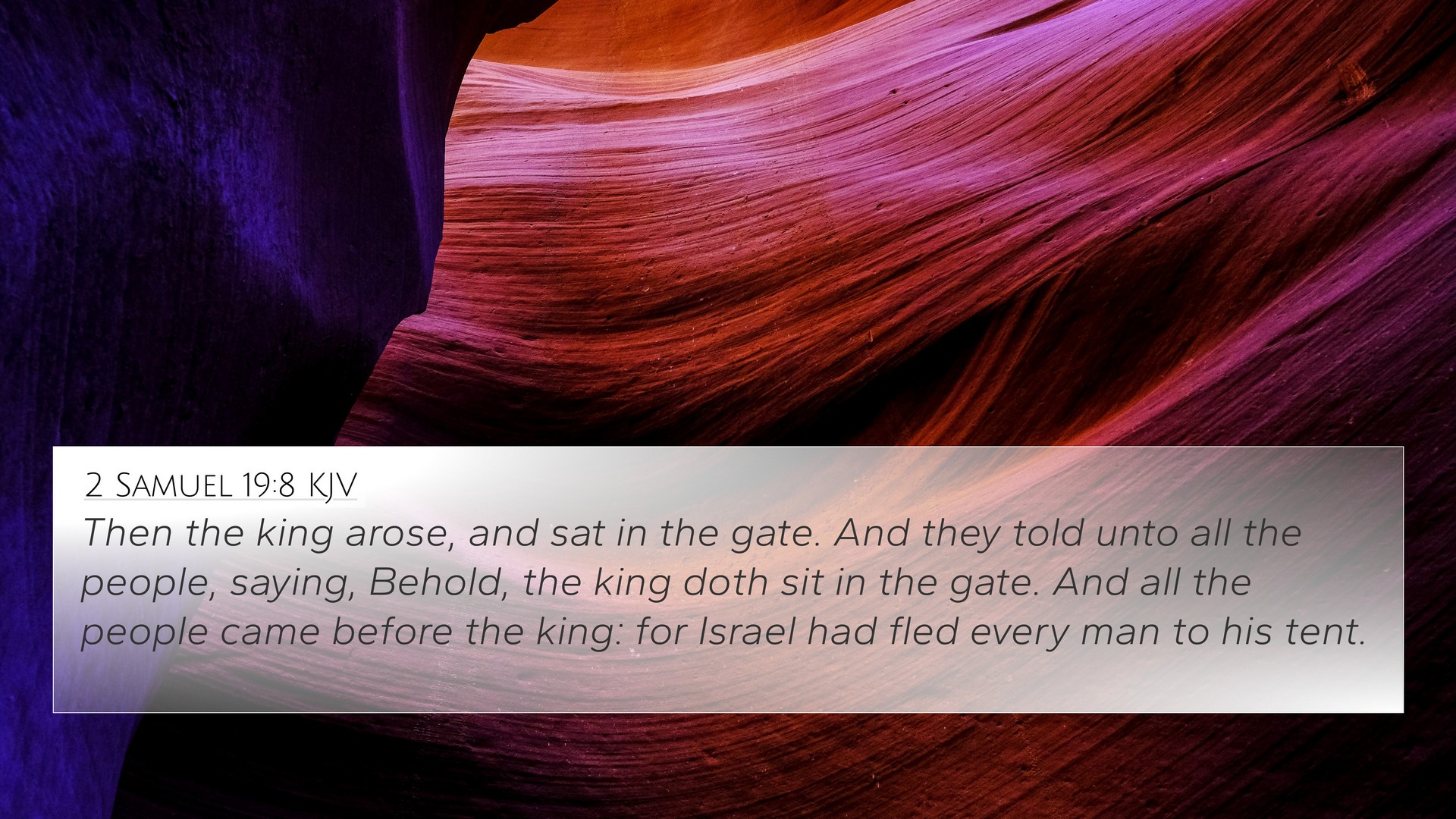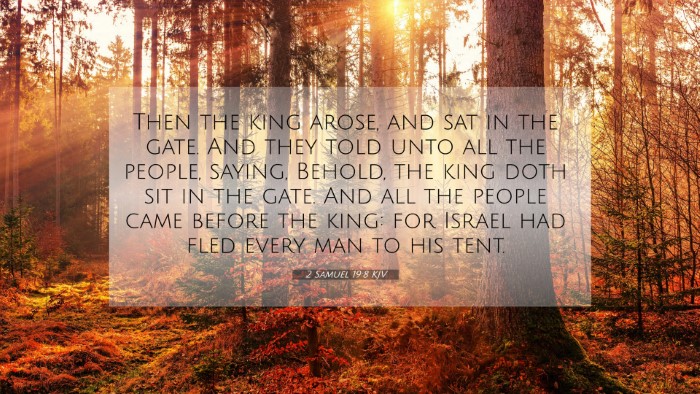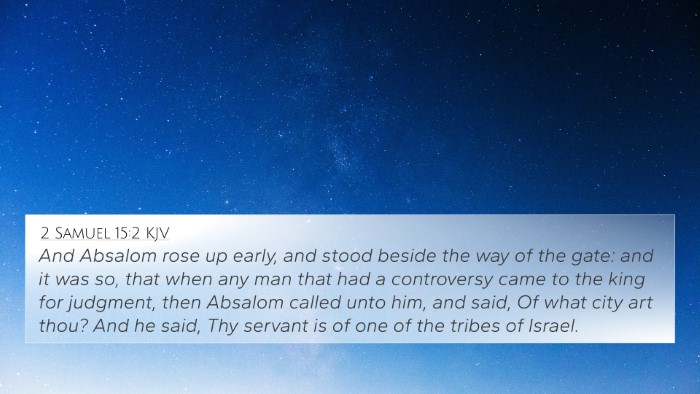Understanding 2 Samuel 19:8
Verse: 2 Samuel 19:8 - "Then the king arose and sat in the gate. And they told unto him, saying, Behold, the king doth sit in the gate. And all the people came before the king: for Israel had fled every man to his tent."
Summary and Context
This passage describes a pivotal moment in the life of King David following his return to Jerusalem after the rebellion of Absalom. As he sits in the gate, he functions not only as a king but also as a judge and leader, drawing the attention of the people who had scattered.
Commentary Insights
- Matthew Henry: Henry emphasizes the restorative presence of David upon his return. The act of sitting in the gate symbolizes authority and readiness to govern. His position attracts people, aiding in the reconciliation process after civil strife.
- Albert Barnes: Barnes points out the significance of the gate as a public space where royal judgments were made. David's sitting there signifies his regained authority and reestablishes his connection with the people, who were previously divided.
- Adam Clarke: Clarke elaborates that David's actions display a methodological approach to leadership. His call to the troubled people illustrates a transition from a state of turmoil to a place of united governance.
Thematic Connections and Cross-References
This passage can be linked to various other Bible verses that explore similar themes of leadership, reconciliation, and the role of the king. Here are 10 Bible cross-references that deepen the understanding:
- 1 Samuel 8:7-9: God’s warning to Israel about the nature of kingship.
- 2 Samuel 14:1-33: The reconciliation of Absalom with David serves as a backdrop to this moment.
- 2 Samuel 15:13-14: The context of rebellion against David highlights the importance of his leadership in this verse.
- 1 Kings 1:5-39: The affairs of the kingdom and the implications of leadership transitions.
- Psalm 122:2: The significance of sitting in the gates as a sign of peace and unity.
- Ezra 10:1: A similar gathering of the people seeking guidance from their leader.
- Luke 19:10: Jesus’ mission to seek and save the lost parallels David’s reconciliatory role.
- Romans 14:19: The importance of pursuing peace resonates with David’s intent in this passage.
- 1 Peter 5:2-3: A further biblical perspective on the nature of shepherding in leadership roles.
- Hebrews 13:17: The call for obedience to leaders, reflecting on David’s authority as king.
Connections Between Bible Verses
Examining the inter-Biblical dialogue allows for a deeper appreciation of the character of David, the methodology of leading God's people, and the navigation through rebellion and unity.
Linking Bible Scriptures
The unity of 2 Samuel 19:8 with related verses provides an avenue for understanding the complexity of kingship in Israel. David's leadership emerges as a significant theme, pointing to the qualities sought in a leader:
- Authority: Reflected in David's position at the gate.
- Reconciliation: Illustrated by the gathering of the people.
- Judgment: David as the source of wisdom for the people.
Tools for Bible Cross-Referencing
Using various tools for biblical cross-referencing allows for a comprehensive study:
- Bible concordance
- Bible cross-reference guide
- Cross-reference Bible study
- Bible reference resources
- Bible chain references
How to Use Bible Cross-References
To effectively interpret passages like 2 Samuel 19:8, one can:
- Identify themes in the text.
- Find cross-references that reinforce those themes.
- Explore the narrative flow between Old and New Testament connections.
- Utilize study tools designed for cross-referencing.
Conclusion
In conclusion, 2 Samuel 19:8 serves as a vital link in the greater narrative of David’s kingship. Through cross-referencing and exploring themes within other biblical texts, one can better appreciate the intricate tapestry of scripture that relates to leadership, unity, and the governance of God’s people.
This verse and its associated themes offer abundant insights for anyone engaging in deeper biblical studies, whether for personal growth or sermon preparation.










